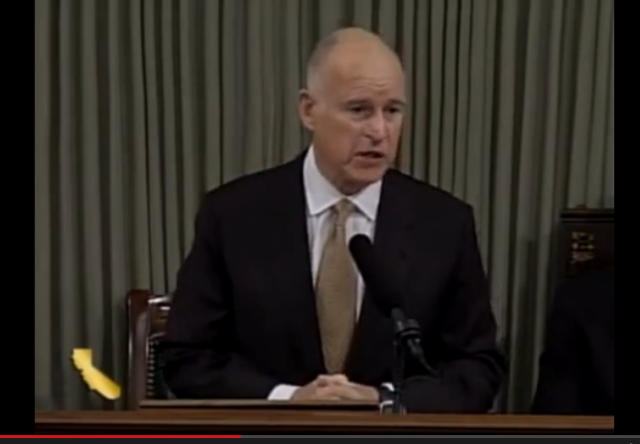California’s lawmakers vote to raise state gas tax

When I wrote about California’s senate mulling over a law that would repeal the state income tax for teachers, I predicted a new tax on fuel and electric cars was poised to slide through our legislature and become law.
Faced with a personal appeal by Gov. Jerry Brown, a Senate panel on Monday gave the first approval to a measure that would raise gas taxes and vehicle fees by $52 billion during the next decade for road and bridge repairs.The bill by Brown and legislative leaders was approved in a 5-2, party-line vote by the Senate Appropriations Committee, which sent it to the Senate floor, where it is proposed to come up for a vote on Thursday.“The roads are broken and they are getting worse and they are not going to get better unless we get a significant injection of money,” Brown told the panel in rare testimony to a legislative committee.
California’s intrepid conservative reporter in Sacramento, Katy Grimes, summarizes where we are going to feel the fiscal hit.
- SB 1 will raise the base excise tax on gasoline by 12 cents per gallon, bringing it to 30 cents. Another variable excise tax will be set at 17 cents.
- Diesel fuel and biodiesel will increase the state excise tax 20 cents per gallon from 16 cents to 36 cents a gallon. A diesel-only sales tax which is charged in addition to the state and local sales tax rates, will increase from 1.75 percent to 5.75 percent, going up four percentage points.
- Electric car owners will pay a $100 annual fee, after 2020, and only on new electric vehicles.
- The package also creates an annual vehicle licensing fee ranging from $25 for cars valued at under $5,000, to $175 for cars worth $60,000 or more.
When I discussed the quest of our Democrat politicos for “Sanctuary State” status, I mentioned that the measure was not as popular as was being touted. The gas tax was the focus of enormous push-back by citizens, and the small business community is extremely unhappy with the measure.
The National Federation of Independent Business/California, which represents 22,000 small business owners, deems the measure “bad public policy” and “bad politics.”Tom Scott, the organization’s executive director, said California’s roads have been “embarrassingly neglected for decades” while billions of taxpayer dollars have been siphoned away from needed road repairs and transportation projects.And the new bill, he said, was rushed to the Assembly floor without receiving a single committee vote in that house.
Scott also noted the irony in the fact that these same politicians rushed the $15 minimum wage hike through the legislature, but the 50-cent-per-hour pay bump workers got last year as part of the phase-in process will instantly be erased by the new tax increases.
Another measure of how unhappy Californians are about the tax hike is that nearly $1 billion in side deals had to be made to cement legislative vote.
The side deals, which still require legislative approval, showed up in two changes to the budget bill language, with most of it made public at 4 a.m. on the day of the vote.The biggest concession made was a $500-million budget allocation for pet projects helping the districts of state Sen. Anthony Cannella, a Republican, and Democratic Assemblyman Adam Gray, both of whom held out support for the bill until the day before the vote.Cannella’s vote proved critical.
Orange County Register author Joel Kotkin recently wrote about California having a “fly-over” country within the state, as the interior has lost virtually all influence, dwarfed politically by Silicon Valley and Bay Area progressives. The gas tax will hurt “red California” most, as it is those areas that have less discretionary monies and longer travel distances to work.
I also suspect that the monies for infrastructure repair will go preferentially to “blue California”, as it did funding for water projects such as dams.
However, one thing is certain: When it comes to wealth redistribution, our governor will persist.
CLICK HERE FOR FULL VERSION OF THIS STORY